Herping Snake Road (and the surrounding area) October 2-5, 2019.
The weather started off hot, in the mid-90s. The lack of rain for several weeks made for very dry conditions - but there were cool things to be found.
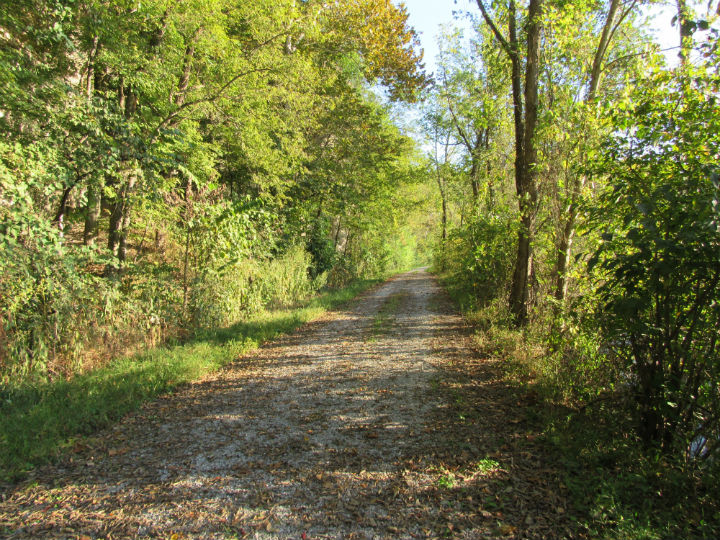
Prior to hitting the road, I investigated a small cave in the limestone bluffs and spotted several Cave Salamanders.
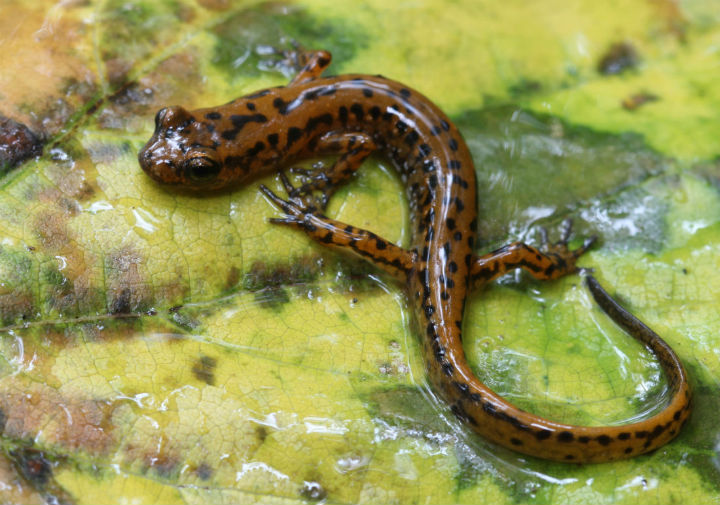
A close-up of one of the Cave Salamanders found on day one of the trip. These exceptionally slender salamanders are usually around 6 inches in length. They are easily identified by their bright red-orange ground color.
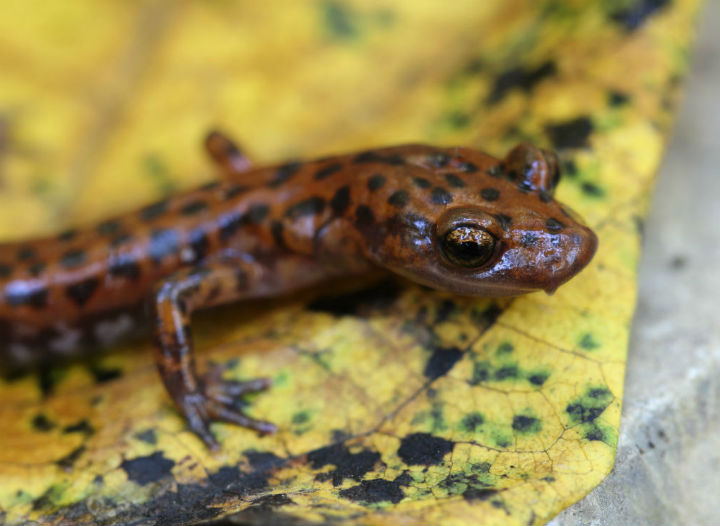
Green Frogs were common in woodland puddles along the sides of trails. Since it is so shaded where these particular amphibians live, having darker-than-usual in coloration helps them blend into their surroundings.
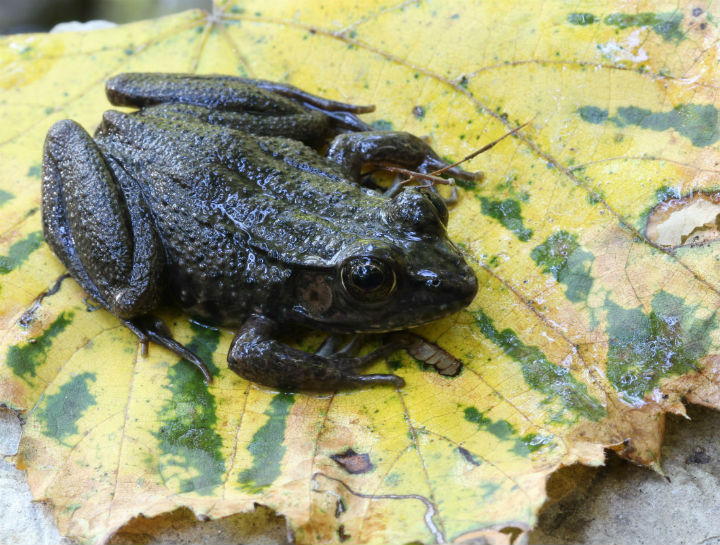
Longtail Salamanders can be rather attractive, with a ground color that is usually some shade of yellow or orange. Streams, springs, seeps, caves, and wet shale banks are the primary habitats for these amphibians.
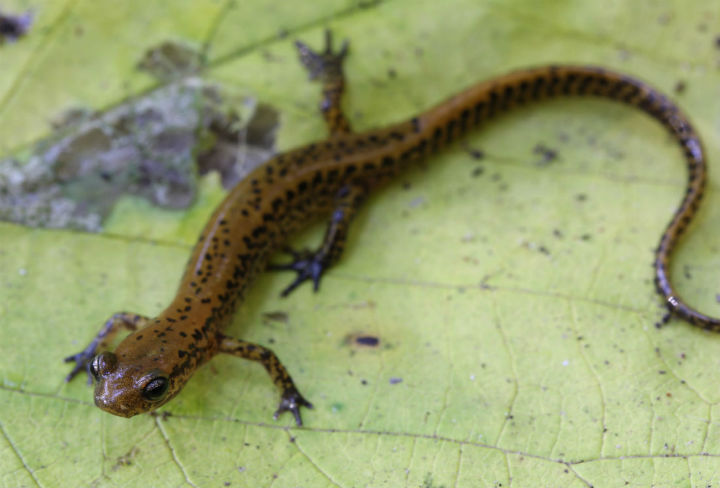
A Southern Leopard Frog, one of the most conspicuous herps that I see on my visits to southern Illinois.
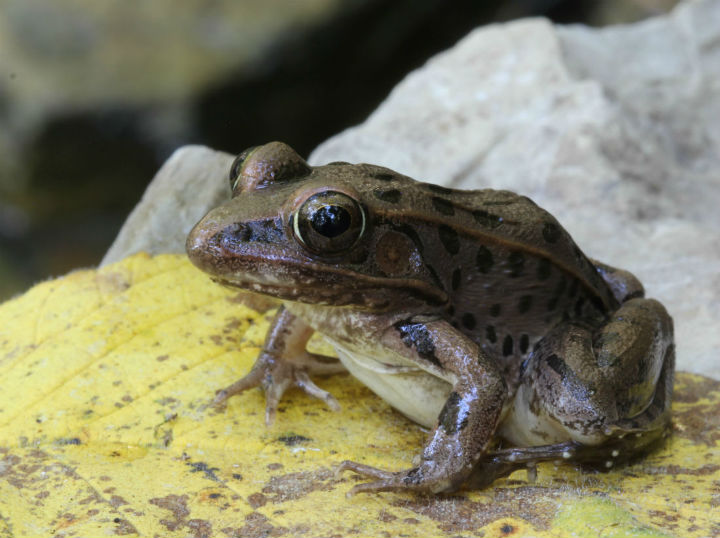
Cottonmouths were the most commonly encountered snakes. This one was crossing Snake Road.
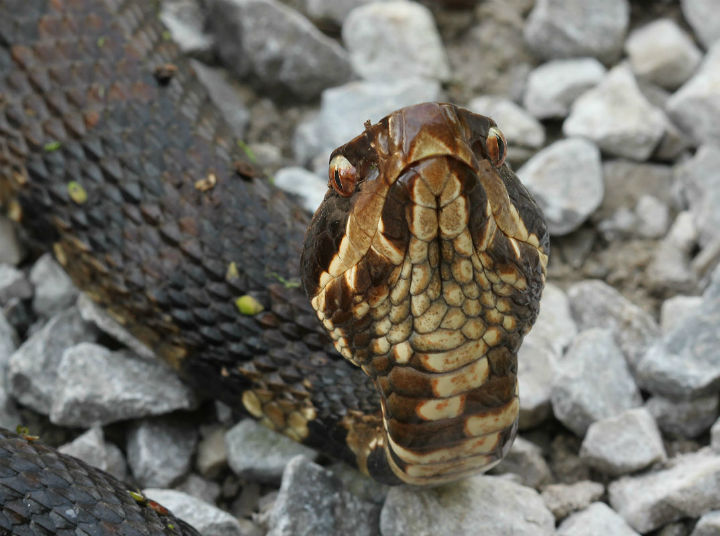
The Green Treefrog can be found in marshes, wet fields, cypress swamps and along the edges of lakes, ponds and streams. It likes spots with lots of ground cover and often sleeps on the undersides of leaves.
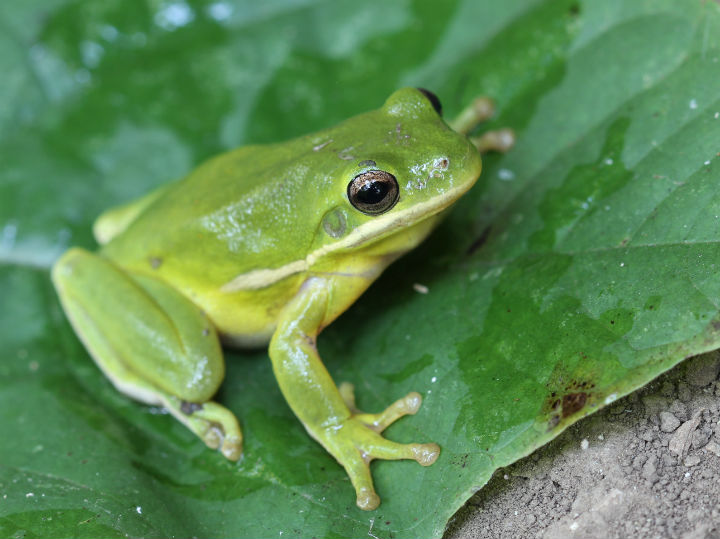
A Plainbelly Water Snake crossing Snake Road. This particular type of water snake is often found a surprisingly far distance from water.
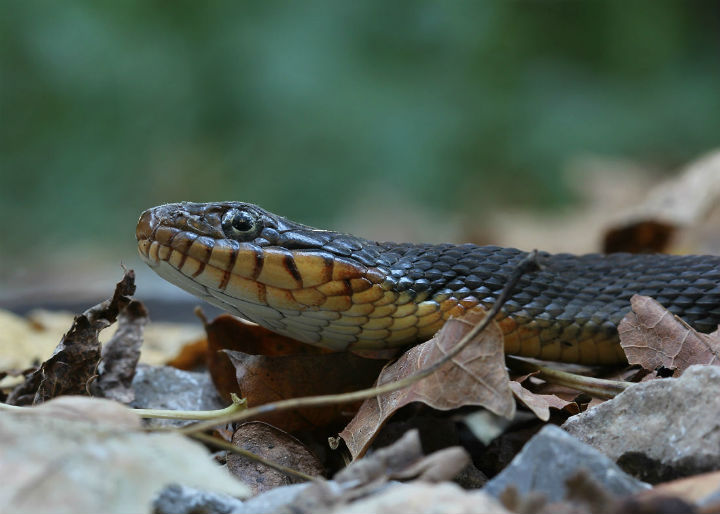
On day two I visited this cypress swamp in Johnson County.
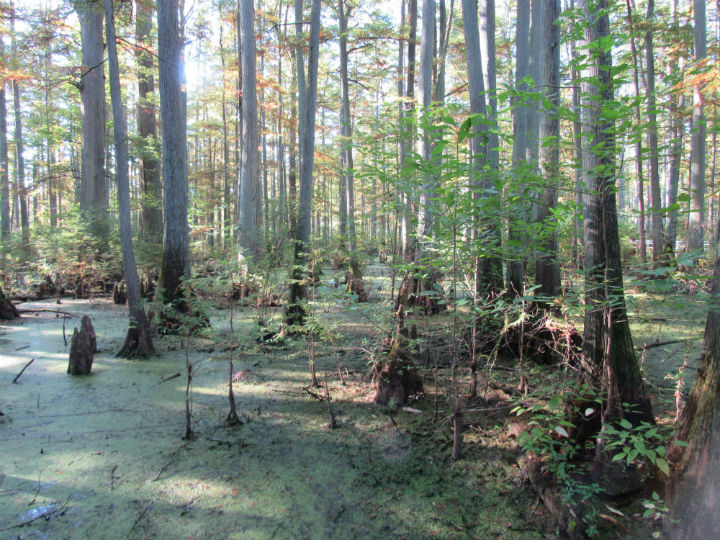
Marbled Salamanders are part of a group known as "mole salamanders," and spend most of their lives under logs or in burrows.
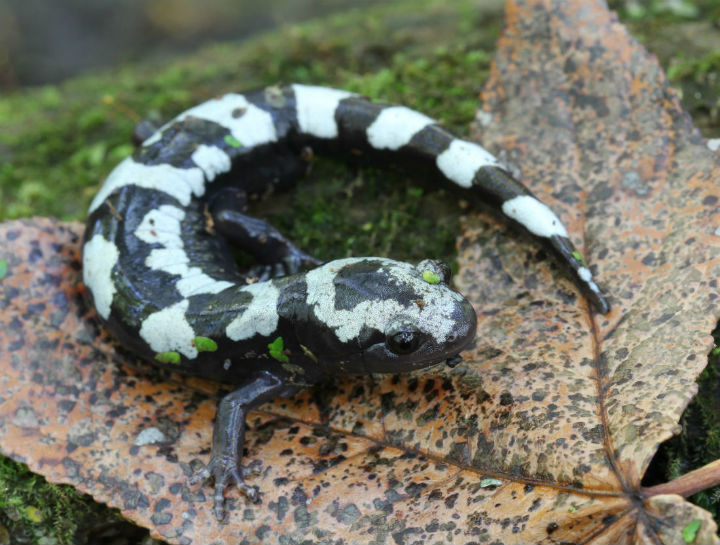
The American Giant Millipede can reach a length of 4 inches. When threatened, it sometimes curls up or releases a noxious liquid.
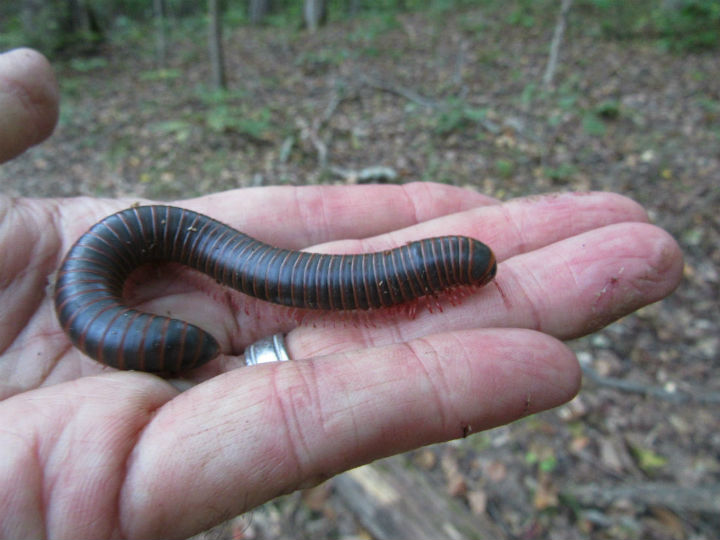
An Eastern Ribbon Snake that I found at the edge of a swamp in Johnson County. The Ribbon Snake gets its name from its very thin body. It is semiaquatic and frequently found along the edges of lakes, bogs and marshes.
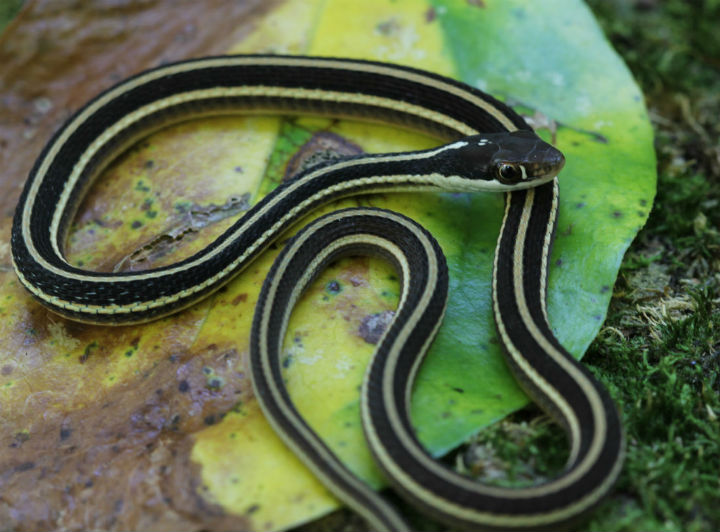
The Eastern Ribbon Snake is a member of the garter snake family. Not only do they look similar to garter snakes, they too are widely distributed throughout the United States.
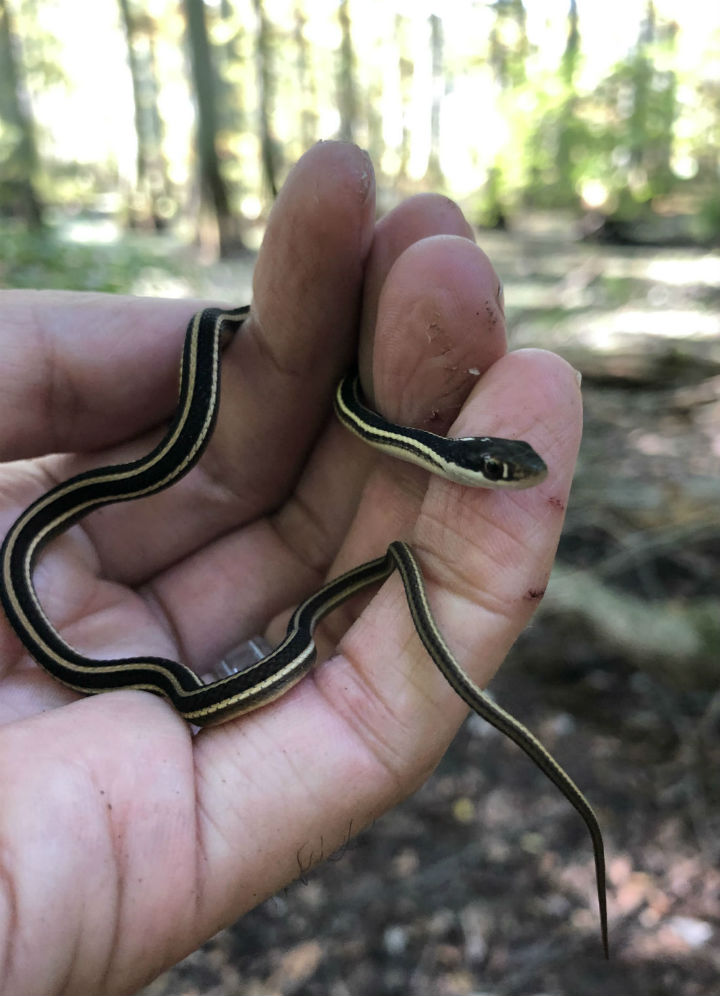
Click here to see Part 2
|